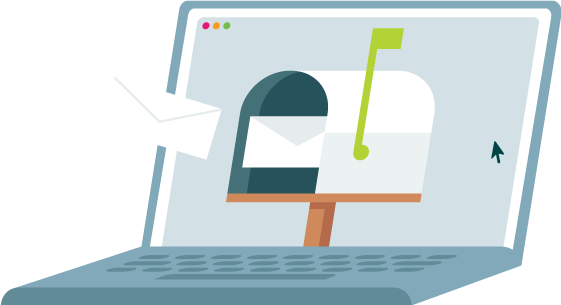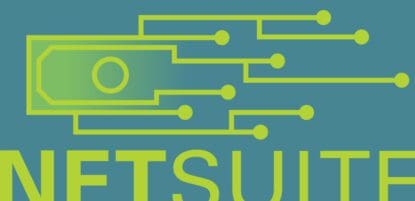You are likely familiar with the online payment portals used for specific vendors, such as your electric company, and understand how these platforms offer some convenience over writing and mailing checks. But as your business and volume of payments grow, these one-off platforms may not offer the capabilities you need to scale payments.
Online bill pay is offered by many banks and credit unions as a service that provides a single place for an individual or small business to organize and pay their bills across multiple vendors. For many businesses, however, online bill pay offers a less-than-ideal solution to the complexities of B2B payments. Relying on a bill pay option may even lead to increasingly inefficient and manual processes as your business scales.
What is Online Bill Pay?
Online bill pay is a service, independent of the vendor whose invoice you are paying, wherein the user simply has to input their various bills into the system to execute payments. With many online bill pay portals, you simply enter your account credentials for vendors like your utility and telecommunications providers and these bills will be brought in automatically to the system. However, for one-off bills or small businesses (like your landscaper or cleaner), you may need to manually key in bills, creating some level of inefficiency.
Once the bills are in the system, you can schedule and pay an unlimited amount of bills to individuals or companies in advance of the due date. While most online bill pay systems default to electronic payments like ACH, some will print a paper check and mail it on your behalf if the company or individual you’re paying can’t accept electronic payments.
This service is designed to be click-and-done for those looking to keep track of their accounts and avoid charges for late or missing payments. However, while this service may be convenient to consumers and small businesses, mid-market companies will likely find that online bill pay lacks the sophistication required for their AP needs, resulting in process inefficiencies, payment reconciliation headaches, and missed opportunities to monetize payments.
How Online Bill Pay Works and How to Set It Up
Each online bill payment service will offer slightly different benefits – such as same-day payments, payment automation, or scheduling reminders – but the set-up processes are similarly designed for consumer convenience.
Online Bill Pay Through Your Bank
Most banks and credit unions provide free online bill pay services to their users, removing the additional step of signing up with a third-party service provider. Using your existing bank’s online bill pay service means that no account information needs to trade hands because payments are made directly from your bank account.
Note that the online bill pay service provided by a bank is different from automated debit transactions where you allow the payee to deduct money from your account on a recurring basis. The risk of allowing automated debit transactions is that it is an open-ended arrangement with the individual or company that allows them to draft fraudulent or incorrect amounts, regardless of whether you have the appropriate funds in your account.
Online Bill Pay Through a Service Provider
Online bill pay service providers are third-party companies that pay bills on an individual’s behalf. These service providers typically charge a monthly fee for the convenience of processing all of your bill payments for you. There are many providers that offer payment processing services to businesses of all scopes and sizes.
Types of Online Bill Payment
One of the advantages for individuals who use online bill pay is the flexibility that it provides when it comes to various one-time or monthly bills. Most services offer three different payment types:
- One-Time Payment: This is a payment that you issue just one time, usually for infrequent services with variable amounts due, such as a renovation project.
- Future Payments: This is a scheduling option that allows you to schedule a bill or payment in advance of its due date so that you don’t forget it later.
- Recurring Payments: These are payments generally made at monthly or quarterly intervals, such as utility bills.
When Your Business Needs Automated Bill Pay
Online bill pay offers some convenience over writing and mailing checks, but as payment volume grows, this is not a scalable model. As your business grows, it will need to bring efficiency to all of its core AP processes – including payments and the time spent reviewing, producing, and reconciling them.
Once your business’s bill threshold exceeds 25-30 bills each month with multiple payment methods, or you grow to the point of hiring a CFO, it becomes prudent to graduate from traditional online bill pay options to integrated payables or invoice-to-pay solutions which offer payment automation across payment methods in a single AP workflow.
The benefits of payment automation solutions like integrated payables include:
- Saved Time and Resources: Is your business facing issues with tracking, reconciliation, or dual-entry? With integrated payables, organizations can process payments across systems and accounts through a single payment file and workflow. This eliminates complexity as accounts payable staff are no longer required to manage different file types and processes for check, ACH, and virtual card payments. In addition, because an integrated payables solution integrates directly with your ERP or accounting system, reconciliation is automatic and seamless, saving your team countless man-hours.
- Save Money and Make Money: Do you need tighter control over cash-flow and approvals? Automated bill pay helps your business to optimize working capital and improve control over payment timing. This also allows businesses to monetize a greater portion of their spend on payment methods that offer rebates (like virtual cards), transforming AP from a cost center to a revenue driver.
- Enhanced Security: Are you worried about sacrificing security for the sake of convenience? Online bill pay generally operates under the assumption of a single user, which means that credentials may be shared across users and could also be used to access bank accounts and other services. Automated bill pay is designed for the multiple users required to facilitate B2B payments with built-in controls such as two-factor authentication, segregation of duties, multiple approval tiers, and more. This reduces the instances of inconsistent security practices and fraud-risk of paper-based, manual processes.
While a familiar online bill pay platform offers many conveniences, they are ill-equipped to handle the various pain points of a growing business. Enhanced security, optimized resources, and greater working capital can all be expanded upon when your business graduates from online bill pay to services like MineralTree’s integrated payables and Invoice-to-Pay solutions.




